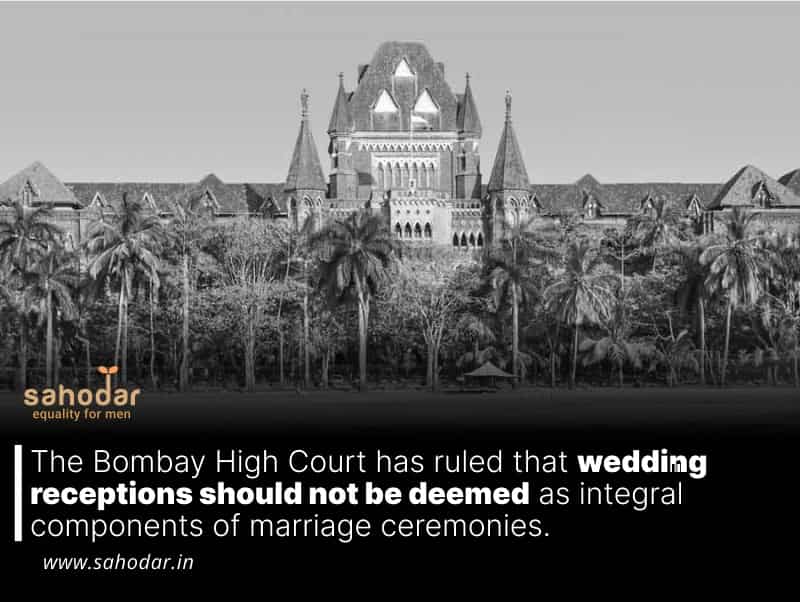Hence, the jurisdiction to file a divorce petition lies before the family court where the marriage ceremony took place and not where the wedding reception happened, the Court said.
Recently, the Bombay High Court made a significant observation regarding wedding receptions, stating that they should not be regarded as integral aspects of marriage rituals. Consequently, the court clarified that the appropriate jurisdiction for filing a divorce petition lies with the family court where the marriage ceremony itself occurred, rather than where the reception was held.
Justice Rajesh Patil, acting as a single judge, overturned an order from April 2022 issued by a family court in Mumbai. This order had previously asserted its jurisdiction to handle a divorce petition from a husband based on the fact that the wedding reception took place in Mumbai, despite the actual wedding ceremony, conducted according to Hindu Vedic rites, occurring in Jodhpur, Rajasthan.
“In my view, there can’t be any doubt that a wedding reception can’t be called as a part of marriage ritual,” Justice Patil noted in his order of April 15.
The High Court observed that the couple’s last place of residence was in the USA, not Mumbai, where they only briefly stayed for 10 days following their marriage. Consequently, the High Court ruled that the family court in Mumbai lacks jurisdiction to hear the divorce petition.
“The Family Court in Mumbai will have no jurisdiction, under section 19 (iii) of Hindu Marriage Act, to entertain Divorce Petition in Mumbai. The impugned order is quashed and set aside,” the Court ordered.
In 2015, the couple solemnized their marriage according to Hindu Vedic customs in Jodhpur.
Following their wedding, they hosted a reception in Mumbai four days later. Subsequently, they briefly resided in Mumbai at the husband’s parents’ residence before relocating to the USA.
In October 2019, due to marital discord, they began living apart in the USA. The husband initiated divorce proceedings under the Hindu Marriage Act in August 2020, citing cruelty.
Four months later, the wife filed for divorce in a US court, a case that is still awaiting a hearing.
Additionally, she filed an application in the family court in Mumbai questioning the jurisdiction of her husband’s divorce petition.
Upon the rejection of her application by the family court, she appealed to the High Court, which subsequently overturned the family court’s decision.

